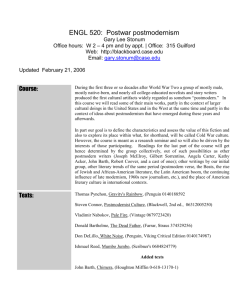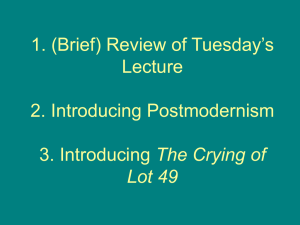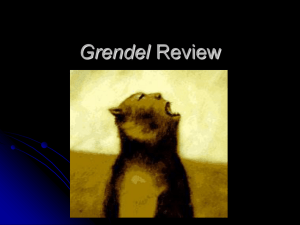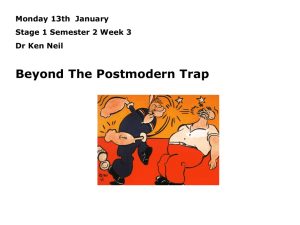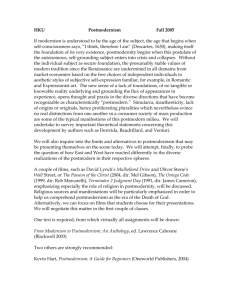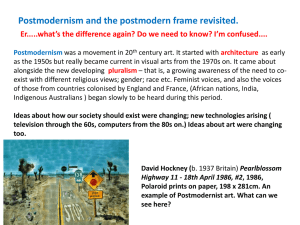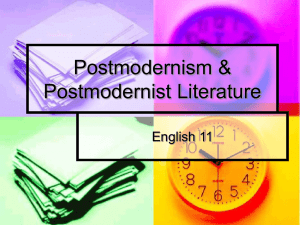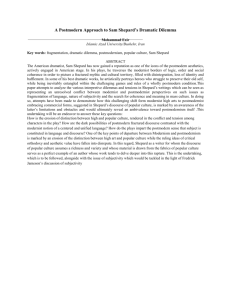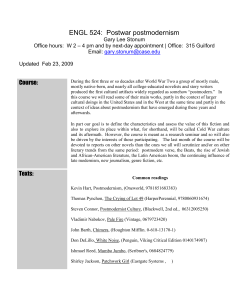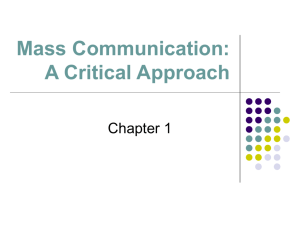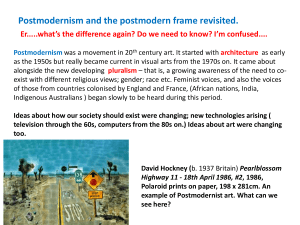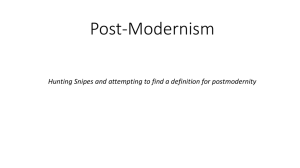acta universitatis gothoburgensis
advertisement
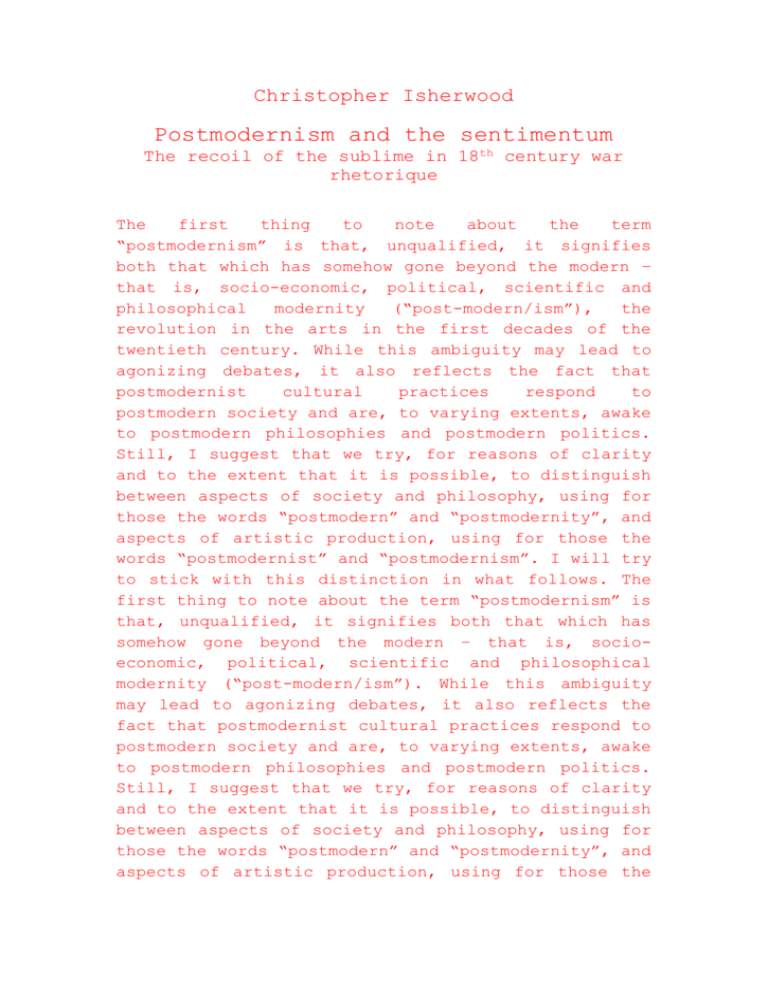
Christopher Isherwood Postmodernism and the sentimentum The recoil of the sublime in 18th century war rhetorique The first thing to note about the term “postmodernism” is that, unqualified, it signifies both that which has somehow gone beyond the modern – that is, socio-economic, political, scientific and philosophical modernity (“post-modern/ism”), the revolution in the arts in the first decades of the twentieth century. While this ambiguity may lead to agonizing debates, it also reflects the fact that postmodernist cultural practices respond to postmodern society and are, to varying extents, awake to postmodern philosophies and postmodern politics. Still, I suggest that we try, for reasons of clarity and to the extent that it is possible, to distinguish between aspects of society and philosophy, using for those the words “postmodern” and “postmodernity”, and aspects of artistic production, using for those the words “postmodernist” and “postmodernism”. I will try to stick with this distinction in what follows. The first thing to note about the term “postmodernism” is that, unqualified, it signifies both that which has somehow gone beyond the modern – that is, socioeconomic, political, scientific and philosophical modernity (“post-modern/ism”). While this ambiguity may lead to agonizing debates, it also reflects the fact that postmodernist cultural practices respond to postmodern society and are, to varying extents, awake to postmodern philosophies and postmodern politics. Still, I suggest that we try, for reasons of clarity and to the extent that it is possible, to distinguish between aspects of society and philosophy, using for those the words “postmodern” and “postmodernity”, and aspects of artistic production, using for those the words “postmodernist” and “postmodernism”. I will try to stick with this distinction in what follows. ACTA UNIVERSITATIS GOTHOBURGENSIS GOTHENBURG STUDIES IN ENGLISH 85 Distributor: Acta Universitatis Gothoburgensis Box 222, SE-405 30 Göteborg, Sweden ISSN 0072-503x ISBN 1211391411
